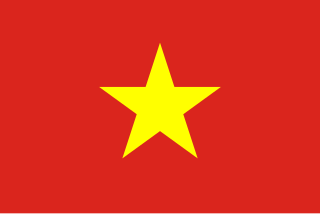HeadlessSeeker
Professional
- Jul 1, 2018
- 2,764

Socialist Republic of Vietnam
Private & Encrypted
Preparations were being made for the arrival and meeting with the South Korean delegation that would arrive on the 30th. The South Koreans would be informed ahead of time to arrive at Noi Bai International Airport. Accommodations were arranged at the Tonkin Palace also known as the State Guest house. A room set aside for the meeting with the best food in Vietnam put on menus. While not much in terms of luxury a convoy of 20 UAZ-452 would be prepared to drive the delegation from the airport to the Tonkin Palace. Minister of Trade Hoàng Trung Hải and 20 Ministry of Industry and Trade personnel would be told that they would be welcoming the delegation upon arrival. The Minister himself at the airport and the rest at the palace. A Platoon of soldiers would be on standby for security. The minister would be at the airport with a Vietnamese state media camera crew, platoon of Soldiers in ceremonial attire, and this would be in 2 hours advance of arrival.
Jay


